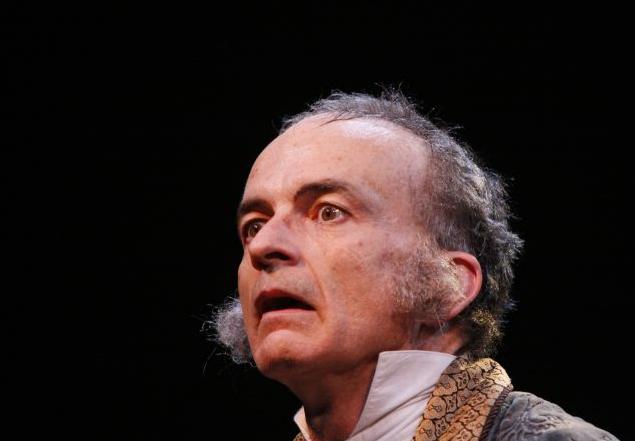With two big new biographies just published on Charles Dickens, one wonders how ACT’s annual holiday staple, A Christmas Carol, might be written in 2011 instead of 1843. Victorian England was a grim place, with the Industrial Revolution creating a grossly stratified society not so different from our economic inequality today. Marley’s ghost, for instance, returns from the grave to warn against the mistreatment of workers, who are being so cruelly exploited by nascent capitalism. In today’s terms, this would be like receiving regretful emails from the late Steve Jobs, instructing Apple to raise the salaries and cut the hours at the Foxconn plant in Shenzhen. (Maybe it would take Mike Daisey to write that particular update on the novel.) Ebenezer Scrooge, who’s taken on a Christmas tour by his old business partner, would be analogous to someone like Rupert Murdoch—a wrinkly old miser who, in the face of a phone-hacking scandal (with Milly Dowler substituting for Tiny Tim), must suddenly reconsider his ways. The poor clerk Bob Cratchit, an office drone who can’t afford food or coal to support his family, is something like the former WaMu underling whose bosses walked away with millions before the subprime mortgage catastrophe took down the bank and entire American economy. Cratchit today would be camped out with Occupy Wall Street, huddled in the rain beneath a blue tarp or living in his car. And what of lame, pathetic Tiny Tim, whose love and optimism imbue Scrooge with Christmas spirit? Today, of course, we couldn’t use the term “cripple,” nor has Justin Bieber developed a limp. Instead we have to look to the tech sector for disabled, possibly doomed figure of such pathos: Who doesn’t weep a tear for the tiny, orphaned Zune? BRIAN MILLER
Fri., Nov. 25, 7 p.m.; Tuesdays-Sundays. Starts: Nov. 25. Continues through Dec. 24, 2011




